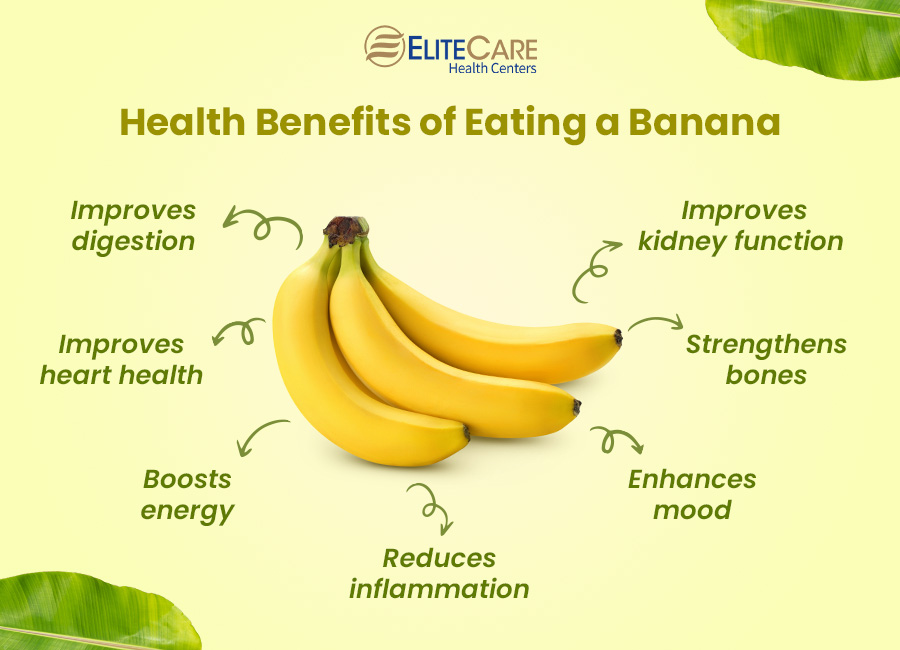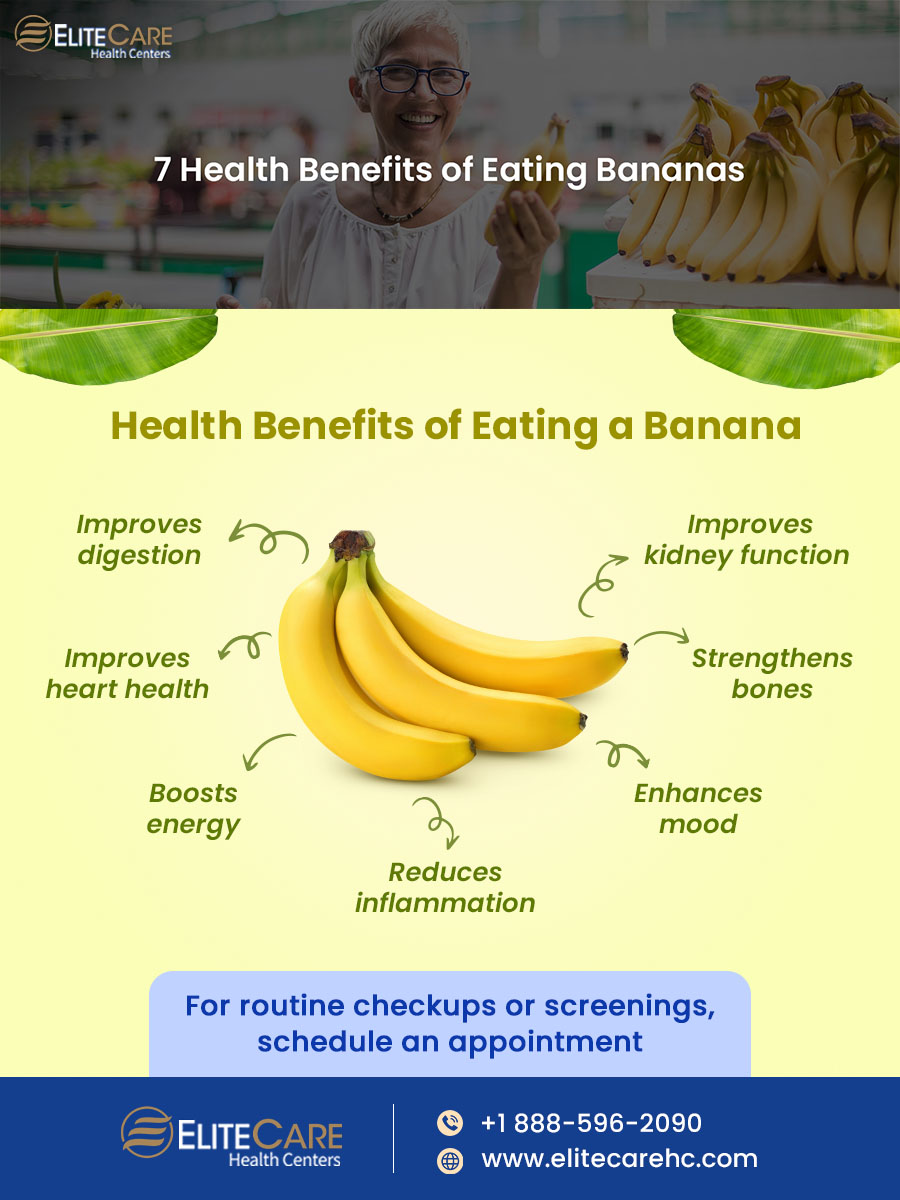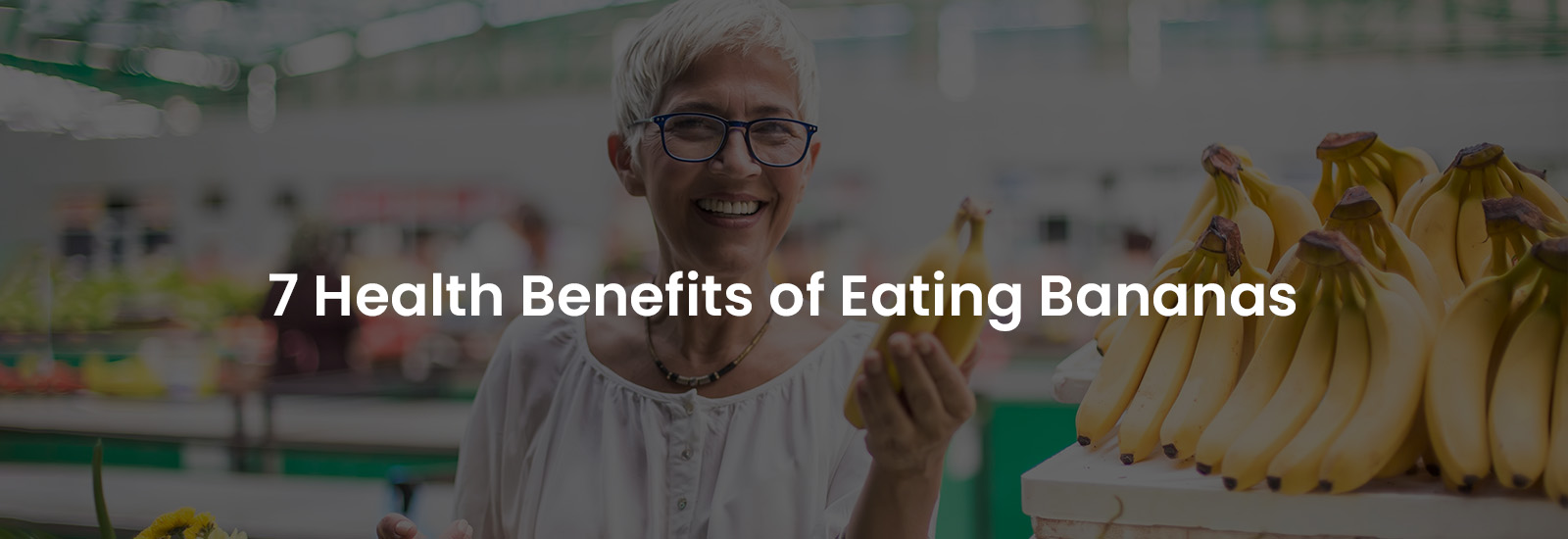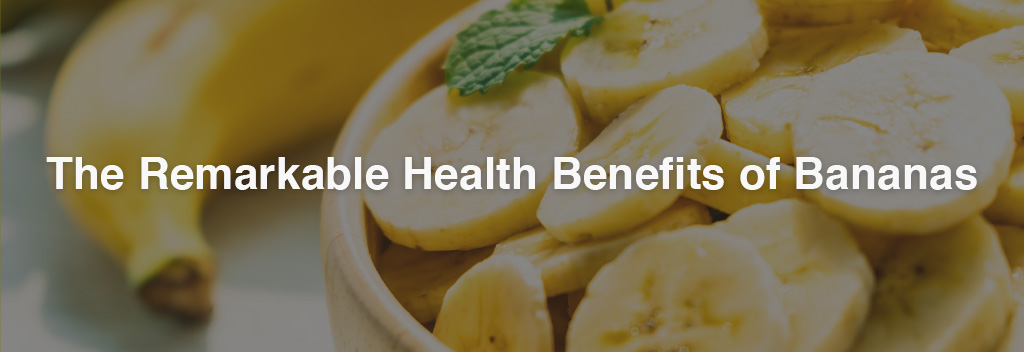
Bananas are one of the most beloved fruits in the United States. With their affordable pricing, year-round availability, and numerous health benefits, it’s no wonder they are a staple in so many households. This versatile fruit can be enjoyed on its own or used in a variety of recipes, from sweet smoothies to cakes, breads and more. But it’s not just their taste that makes bananas so popular – they are packed with important nutrients like fiber, vitamins, and minerals that are essential for a healthy diet. In fact, according to The Packer’s Fresh Trends, bananas are the most commonly sold fruit in the United States1. In this blog post, we’ll explore the many reasons why bananas are such a nutritious and healthy food.
Despite its numerous health benefits, there have been various claims suggesting that bananas can cause weight gain and constipation, but this is a common misconception. Bananas are actually low in calories and high in fiber, which can aid in digestion and help to promote feelings of fullness. However, they are relatively high in carbohydrates and natural sugars, which can lead to weight gain if consumed in excess.
Nutritional Content of a Banana
Bananas are a nutrient-rich fruit that provides a variety of health benefits. Here’s a breakdown of the nutrients found in them:
Carbohydrates
Bananas are rich in carbohydrates, which are the body’s primary source of energy. The carbohydrates in it are mainly in the form of glucose, fructose, and sucrose, which are quickly absorbed by the body and used as energy.
Fiber
Ripe bananas are a great source of dietary fiber, which helps regulate digestion and prevent constipation.
Vitamins
Bananas are rich in several vitamins, including vitamin C, vitamin B6, and vitamin B9 (folate). Vitamin C is an antioxidant that helps boost the immune system, while vitamin B6 and folate help maintain healthy blood cells and brain function.
Read More: Signs of Vitamin B12 Deficiency in Older Adults
Minerals
Bananas are also a good source of several minerals, including potassium, magnesium, and manganese. Potassium helps regulate blood pressure and prevent muscle cramps, while magnesium and manganese are important for bone health and energy metabolism.
One medium-sized banana contains approximately 110 calories, 28 grams of carbohydrates, 3 grams of fiber, and 450 milligrams of potassium2. This high potassium content is why bananas are a popular food among athletes and fitness enthusiasts, as they help to maintain healthy muscles and regulate blood pressure. Furthermore, the fruit’s 15 grams of naturally occurring sugars make it an excellent energy source and a perfect pre-workout snack. But what are some of the health benefits of eating bananas? Read on to find out.
Health Benefits of Eating a Banana

Eating bananas can offer numerous health advantages such as:
Improved digestion
Bananas have an abundance of dietary fiber, which can help improve digestion and prevent constipation. Additionally, it contains certain enzymes like amylase that can be beneficial for people who have difficulty digesting carbohydrates, such as those with irritable bowel syndrome (IBS) or other digestive disorders. It also contains compounds like pectin, a type of soluble fiber that can help to reduce inflammation in the digestive system and alleviate symptoms of diarrhea.
Heart health
Bananas are often considered a heart-healthy food due to their high potassium content. Potassium is a mineral that helps to regulate fluid balance in the body, which in turn helps to maintain healthy blood pressure levels. In addition to potassium, it also contains Vitamin C, which has been shown to improve blood vessel function and reduce the risk of heart disease.
Energy boost
Carbohydrates are the body’s primary source of energy, and bananas are a particularly good source of this nutrient. Additionally, it contains vitamin B6 which is vital for the metabolism of carbohydrates and protein. It also contains fiber, which helps to slow down the digestion of carbohydrates and prevent blood sugar spikes. This, in turn, can help to provide sustained energy throughout the day.
Reduced inflammation
Bananas contain several compounds that have anti-inflammatory properties, including flavonoids and vitamin C. Flavonoids are plant-based compounds that help reduce the production of pro-inflammatory molecules in the body. It contains a flavonoid called quercetin, which has been shown to reduce inflammation both in human and animal models. Vitamin C is also known to have anti-inflammatory properties and can help to reduce oxidative stress in the body, which can contribute to inflammation.
Mood enhancement
Bananas contain tryptophan, an essential amino acid that helps in the production of serotonin. The B6 in it can also help in the production of several neurotransmitters, including dopamine and norepinephrine, the “feel-good” hormones that are important for regulating mood, motivation, and pleasure.
Improved kidney function
Bananas are rich in potassium and low in sodium. The high potassium content in bananas can help improve kidney function as it is easily absorbed by the body. They are also natural diuretics, which means they can help increase urine output4. This can be beneficial for individuals with kidney problems, as it can help flush out excess toxins and waste products from the body.
Bone health
Bananas contain manganese which plays a vital role in the development and maintenance of strong bones. It helps in the formation of connective tissues, which are crucial for the growth and repair of bones. Moreover, its high potassium content helps reduce calcium excretion and helps preserve calcium stores in the body.
Bananas are also fairly low on the glycemic index as the carbohydrates in them are considered to be a resistant starch which works similarly to dietary fiber, meaning it is not easily digested in the small intestine. As a result, it releases glucose into the bloodstream very slowly. This can help individuals feel more satiated without a sugar spike, thus making it an ideal snack for diabetics.
Conclusion
Bananas are an excellent addition to a healthy diet, providing a plethora of nutritional benefits. With only around 110 calories per serving, they are a great low-calorie snack that can provide an instant energy boost. Moreover, research shows that regularly eating a banana (8.9 grams per day) can help reduce the risk of developing breast cancer. In addition to their cancer-fighting properties, bananas are also rich in essential vitamins and minerals which can help maintain heart health, support immune function, and aid in the production of red blood cells. So, incorporating bananas into the daily diet is a simple and delicious way to reap all their goodness.
Visit the nearest EliteCare health and wellness center for personalized health and wellness advice. EliteCare is one of Florida’s best medical clinics, with a team of highly trained primary care physicians who offer services like venipuncture, women’s wellness exams, preventative care and more. Visit our website to schedule an appointment today.






